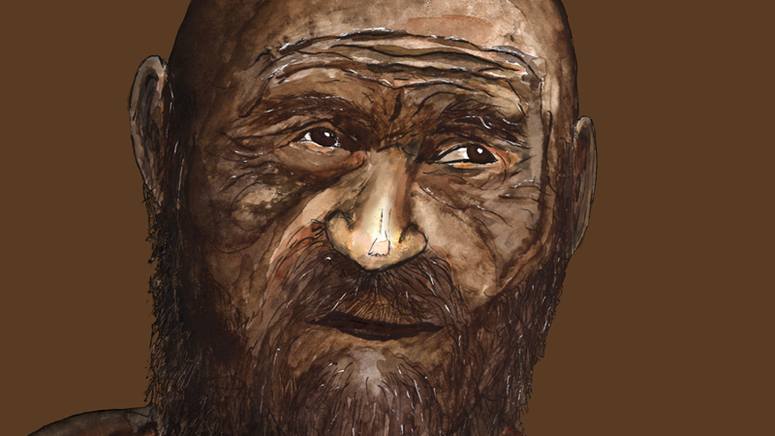A recent study: "The Snowman" Ötzi was bald and dark-skinned

Ötzi, compared to his European contemporaries, shows an unusually high genetic ratio of early immigrant farmers in Anatolia, according to the study.
It turned out that the human "Otzi", known as the "Ice Man", who dates back to prehistoric times, had darker skin than was thought and may have been bald, according to a study published Wednesday by the Max Planck Institute for Anthropology in Leipzig.
The German institute, which conducted the study in cooperation with the Orac Institute for Research on Mummies in Bolzano, Italy, indicated that the analysis of the genome of the most famous mummy in Europe, which dates back more than 5 thousand years, showed that its ancestors came from Anatolia.
The age of "Otzi" when he died was estimated at about 45 years, and his hair may not have been long, but it was light.

And his genes showed that he had a genetic predisposition to baldness, which explains "the almost absence of hair on the mummy," according to research co-author Albert Zink of the "ORAC" Institute.
In addition, until today, researchers believed that the mummy's skin had darkened during its storage in the snow, but it is possible that this darkening is related to "his true skin color," Zink said.
Otzi's genome was sequenced in 2012, but the researchers used improved sequencing methods to get better results, according to the study.
Ötzi, compared to his European contemporaries, shows an unusually high genetic ratio of the first immigrant farmers in Anatolia, according to the study.
The researchers concluded that he was descended from an Alpine community whose members were relatively isolated and had little contact with other European groups.

Today's Europeans are mainly descended from a mixture of genes belonging to three groups. The first hunter-gatherers in Western Europe gradually merged with the first farmers who migrated from the Near East about 8,000 years ago. They were then joined by plains herders from Eastern Europe about 4,900 years ago.
The new study did not confirm the genetic effects of this group, which were detected in Otzi's genotype during the first analyses.
The sample used was subjected to modern DNA.
"We were very surprised to find no trace of plains grazers from Eastern Europe in the new Ötzi genome, and the presence of hunter-gatherer genes was also very low," said researcher Johannes Krause, co-author of the study.
"Genetically, his ancestors seem to have come directly from Anatolia," he added.
Source: websites

